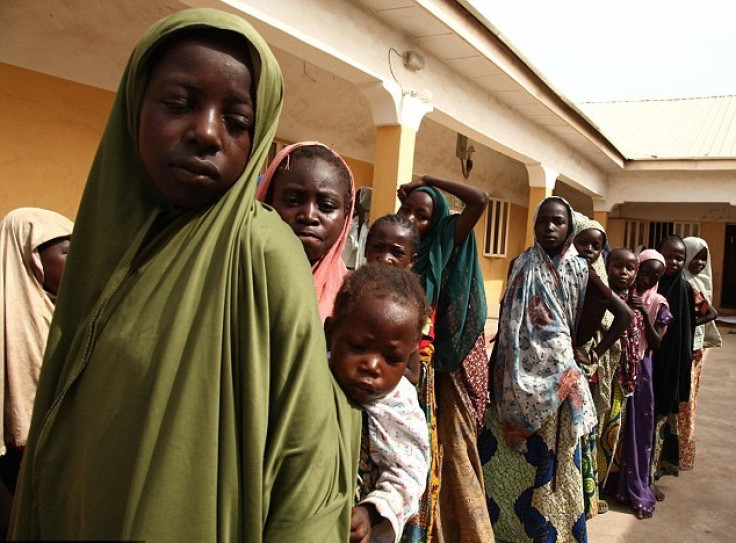Boko Haram: Insurgency 'blow to education' as one million children are out of school

More than one million children in northern Nigeria and neighbouring countries are unable to go to school due to the deadly insurgency carried out by Boko Haram terrorists, the UN's children fund Unicef has warned.
The charity said that the number adds to the 11 million children who were already unable to attend school in Nigeria, Cameroon, Chad and Niger before the insurgency erupted in 2009.
Due to the prolonged violence that has caused the death of thousands, both teachers and children are reluctant to go to schools in affected areas, fearing for their lives. Unicef estimated that at least 600 teachers have been killed in Nigeria and neighbouring countries in recent violence.
Doune Porter, from Unicef Nigeria, told IBTImes UK that there are negative long-term consequences impacting the life of children in restive areas.
"First of all, their education is interrupted and obviously this has a massive impact on their future," she said. "Children are severely traumatised, many of them have seen family members, friends and members of their community killed or injured in front of their eyes."
It is estimated that at least 2 million people have been internally displaced in Nigeria since 2009. Of these, 58% (1.1 million) are children, the majority of whom are under the age of five. In at least 20,000 cases, children have been separated from their families.
Who are Nigeria's Boko Haram terrorists?
Boko Haram (renamed Iswap) fights against Western influence in Nigeria and aims to impose its version of Sharia law throughout occupied territories. The group declared an Islamic caliphate in Gwoza, along the Cameroon border, in August 2014.
Boko Haram carries out attacks in Nigeria and neighbouring countries in a bid to take control of more territory. Three Nigerian states − Adamawa, Borno and Yobe − have been under a state of emergency since May 2013.
Boko Haram has killed between 17,000 and 20,000 people since 2009 and was deemed the world's deadliest terror group, surpassing its ally the Islamic State (Isis), in November. Nigeria has become the world's third most terrorised country as a result of the group's violent insurgency.
"Displaced children live in overcrowded conditions, some of them are living in camps for displaced people and the psychological impact is enormous," Porter said. "Through education, we also try to provide psychological support. Even just the routine of going to school and having some sense of normality helps children to calm and recover. These are deep traumas children have suffered, but education helps."
Porter also explained that children are routinely abducted and used in conflicts by Boko Haram and other militant groups. Boko Haram is well-known for kidnapping women and children and forcing them to carry out suicide bombing missions. The group's wide use of civilians in their fight stirred international outrage following the kidnapping of some 219 schoolgirls from Chibok, a village in the restive Borno state, in April 2014.
The girls, who are still missing, are suspected of having been sold as sex slaves or having been used in suicide attacks.
"Since 2009 it's estimated that 2,000 children have been abducted by Boko Haram and more than 8,000 children have been recruited and used in the conflict," Porter said. "We work very close with the governments in these areas and we call for authorities to use more resources in fields such as education, health and child protection.
"Unicef itself has funding shortfalls and we need $23m (£15m) to provide access to education for children affected by conflicts in the four countries in 2016."
'We will work during Christmas' to defeat Boko Haram
The Nigerian army is leading a regional offensive – consisting of 8,700 troops from Nigeria, Niger, Chad, Cameroon and Benin – against Boko Haram, which pledged alliance to the Islamic State (Isis) in March.
The offensive has scored some successes, such as the recapture of key territories and the recovery of arms and vehicles used by the terrorists during their attacks in the country's north-east and neighbouring nations.
Although attacks blamed on Boko Haram have diminished in the past few months, the group is still operative in several areas. Earlier this year, President Muhammadu Buhari instructed the army to defeat the terrorists within November, a deadline subsequently moved to December. Buhari, however, later said that the time limit was only a guideline.
Speaking to IBTimes UK, defence spokesperson Rabe Abubakar said the ongoing military operation Lafiya Dole against Boko Haram has proven to be successful. The remarks were made as the UK pledged more support to Nigerian troops to tackle the militants.
"More than 200 Boko Haram members have surrendered in recent months and suicide bombings have drastically reduced," Abubakar said. "We are seriously focusing on defeating Boko Haram and we will continue to do so until they cease their activities.
"We work 24 hours to make sure civilians are protected and we will be working during Christmas to make sure our children and loved ones are safe. People should keep living their lives, but they should be wary of attacks and recruitment process. Nigerians should report any criminal activity as the army needs their help."
Nigeria up close: Check out our Flipboard magazine
© Copyright IBTimes 2024. All rights reserved.






